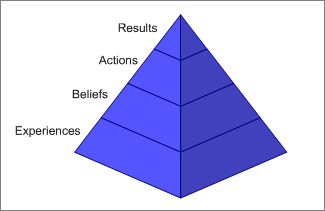Why People Think Help Is Useless, and How To Change This Thought
 I've been rethinking a previous post I wrote about the best response to the remark, "Nobody reads the help anyway. " A better response is to ask people (at just the right time) to raise their hands if they've ever searched a help file. Unless someone is totally unique, most likely everyone has tried using help. When everyone has his or her hand raised to indicate they've used help, it provides irrefutable evidence that help is used.
I've been rethinking a previous post I wrote about the best response to the remark, "Nobody reads the help anyway. " A better response is to ask people (at just the right time) to raise their hands if they've ever searched a help file. Unless someone is totally unique, most likely everyone has tried using help. When everyone has his or her hand raised to indicate they've used help, it provides irrefutable evidence that help is used.
The Real Problem
The real problem isn't that people believe no one uses help, but that no one finds help useful. Most people are too tactful to say this outright, but it is a distinction you might raise: "Did you mean no one uses help, or that no one finds help useful?" The answer is probably both: people don't use help because they don't find it useful. And the more help isn't useful, the less people use it.
Pyramid of Results
The "Pyramid of Results" (what I'm calling it) explains the root of the problem clearly (see graphic). Experiences are the foundation of our beliefs. Beliefs give rise to actions. Actions lead to results. Here's the key:
If you want to change the result, you have to change the underlying experiences behind the result.
In other words, you can't convince people that help is useful unless you change their experiences using help.
I once read that every poor help file is a black eye to the profession. I didn't entirely understand that at first, but now I do. It means that even when engineers in other countries write terrible help documentation, though it seems unrelated to my products, life, and experiences, it actually drives the general experiences users have with help, solidifying in their minds the idea that all help is useless. Since help is useless, it's unlikely that people use it. If people don't use it, it's not significant. Experiences form the basis of their beliefs. So as excited as I may be about my help file, I'm fighting against a mountain of poor experiences that users have had with other help files.
We have to change people's experiences with help if want to change their belief about its usefulness.
My Plan to Change Perceptions
We can turn the tide of this thought, but it will require radical changes. It won't be enough to merely provide well-organized, accurate, grammatically correct help. Help has to go above and beyond the mark of helpfulness. It has to be so good that it blows people away, that it gets your attention in a shocking way. People use the help and their jaw drops because ... because ... all the answers are there, in just the format you want. It's simply awesome. It teaches you everything you need to know, right when you want to know it, concisely.
A Challenge for Creative Innovation
Although we sometimes think our field is dry, technical, and just a day job, if someone can figure out how to make help whallop the user with wonder and awe, it will be the creative innovation of the century. Once we begin to establish a standard and a precedence, people's beliefs will change from feeling that "all help is useless and unimportant" to "the help at my company is exceptionally good and useful; I will explore it more often."
Such a radical shift in help might have the following help characteristics:
- Audiovisual options for each topic (screen demos)
- Excellent search and index -- searching for a word finds the topic
- Personalized help for your role and job title
- Ability to provide feedback to the help authors, to contribute, or otherwise interact
- Cheatsheets, cue cards, quick reference guides, and other handy references you can print
- Abundant visual displays of processes, workflows, procedures, and other eye-catching diagrams
- Help that calculates and aggregates the most popular topics based on number of times viewed and searched for
- An active, engaging blog about the product integrated with or beside the help
- Download options to load help content onto your iPod, BlackBerry, or other device
- Live chat support
- Holographic images of a friendly person explaining (with gesticulations) help concepts (I'm kidding here)
What do you think? What would help need to have to change people's experiences for the better?


